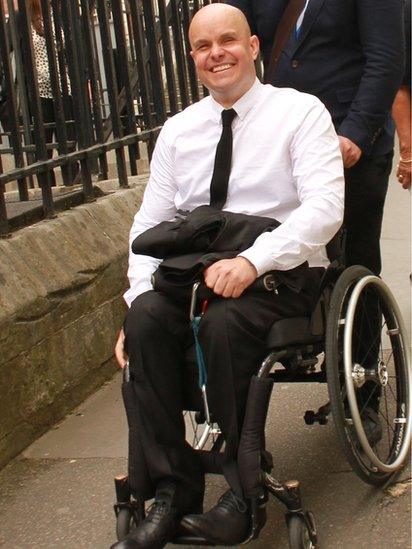Connectivity to Bluetooth sensors
Text-to-Speech
(voice announcements)
Ability to create workouts and
store the data

As it currently stands, assistive technology is not prevalent in
the fitness space. Most tech available are expensive and difficult
to configure making it only accessible to the select elite and
recreational athletes worldwide. Project “VeloCity” aims to solve
that by making the benefits of fitness technology accessible to
everyone.
We are working with Microsoft, an innovative American technology
company with over 200,000 employees. They are involved in almost
every aspect of the technology realm, from operating systems to
cloud services and office automation.
They came to us with a real life situation. Mark Pollock, a blind
and disabled Northern Irish athlete who uses technology to combat
his disabilities and continue practising sport to his maximum. He
approached Microsoft because there was no fitness app in the
market that catered for the visually impaired; and Microsoft set
out to help him.
Our task is to rework and develop said app, keeping user
accessibility as a priority. For this reason, functionalities such
as an accessible GUI and voice announcements are key.
Project “VeloCity” aims to solve the current lack of assistive
technology in the fitness tracking market by making the benefits of
fitness technology accessible to everyone.
Microsoft already presented us with some general requirements
designed with Mark’s help. We also used personas which can be viewed in our HCI
section
We created a
survey we sent
out to several British sports associations for disabled people, such
as:
British Blind Sport
Camden People first
Cerebral Palsy Sport
Limb Power
Wheel Power
UK Sports Association
Their feedback has given us a valuable insight into what users believe is lacking from current fitness technology in terms of accessibility. For example, these are some of the insights from the replies to the survey:

Once we finished researching the requirements of our project, we had a meeting with our clients to discuss the MoSCoW requirements
Connectivity to Bluetooth sensors
Text-to-Speech
(voice announcements)
Ability to create workouts and
store the data
Speech-to-text
Insights page with graphs to track
metrics
Easy start-up once configured for the first
time
Ability to store favourite workouts
General insights
of the average workout time
Virtual coach
Must Have
Accessibility
Deployment
Portability
Open source
Should Have
Boot up time
Efficiency
Readability
Could Have
Performance
Fault tolerance